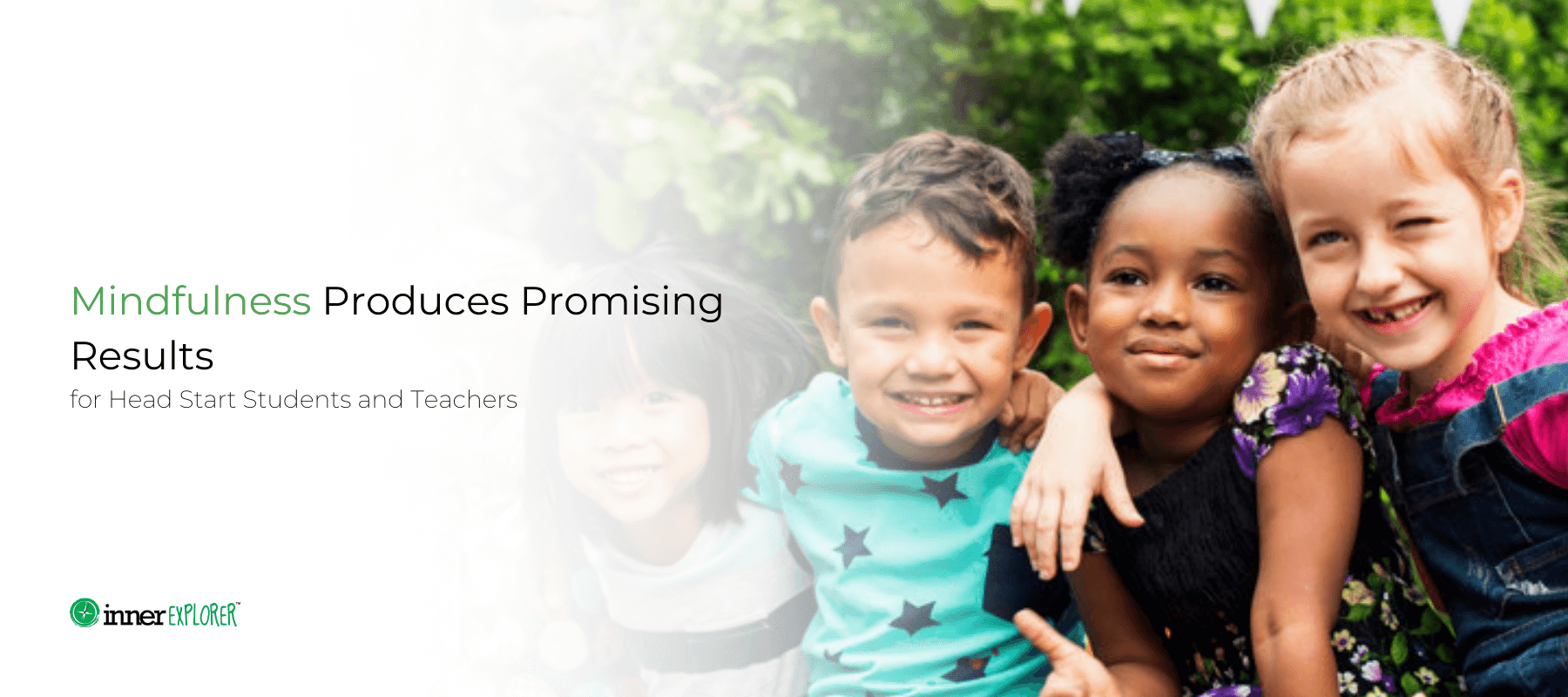

In December 2020, the University of South Florida announced their findings from a study to determine what impact a daily mindfulness practice may have for Head Start students and teachers. The study was led by Lisa M. López, Ph.D., Associate Professor, Educational Psychology, and Jennifer Marshall, Ph.D., CPH, Associate Professor, College of Public Health.
The randomized controlled trial was conducted from January 2019 to March 2020 in 39 Head Start classrooms in Pinellas County (FL) using the Inner ExplorerTM PreK-Kindergarten series. Specifically, the study looked at school readiness (i.e., executive function, emotional regulation, language, and pre-literacy) for students ages three to five, teacher stress levels and health outcomes, and whether there was any change in the quality of child-teacher interactions around emotional support, classroom organization, and instructional support.
The study found that preschool teachers in the Pinellas County Head Start classrooms experienced reductions in stress, burnout, and secondary traumatic stress, and an increase in mindfulness and compassion. After implementing the Inner Explorer program, López and Marshall reported that, on average, preschool students performed better on executive function measures of inhibiting impulsive responses and flexibly shifting attention between multiple tasks. Likewise, the researchers found that preschool teachers using the mindfulness practice had increased their levels of emotional support, classroom organization, and instructional support more than teachers in waitlist classrooms (control group).
" This evaluation [of the Inner Explorer program] is one of the first randomized controlled trials (RCTs) to show that a 5-minute daily mindfulness intervention can positively influence student and educator outcomes in Head Start classrooms. A short daily mindfulness practice can be easily implemented in Head Start classrooms and improves student executive functioning and classroom climate while reducing teacher stress, secondary trauma, and burnout. "
- Lisa M. López, Ph.D., and Jennifer Marshall, Ph.D., CPH